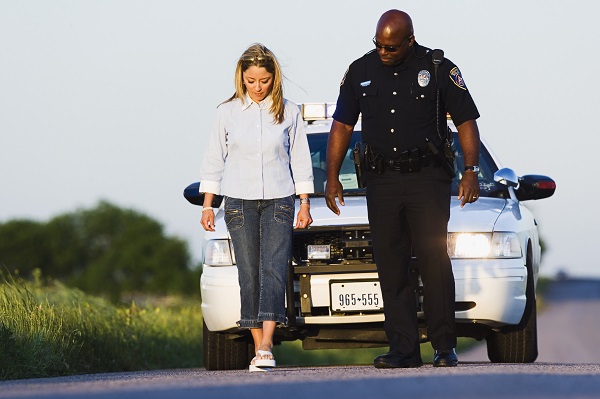Sobriety Test Evidence at Trial

In Oklahoma, sobriety test evidence generally is admissible at trial. However, the validity of this evidence and of expert opinions on a driver’s intoxication can be challenged on a number of grounds. For example, tests may not have been administered correctly, equipment may be flawed, or experts may not be qualified to testify.
Admission of Testimony Regarding SFTSs
Although Standardized Field Sobriety Tests administered on the roadside to a suspected drunk driver are generally accepted nationwide, the highest Oklahoma criminal court has said that they are not true scientific tests. Anderson v. State, 2010 OK CR 27, 252 P.3d 211. In response, the Oklahoma Legislature made changes to one of the statutes that permits admission of sobriety test evidence at trial. Now, law enforcement officers and experts may testify at trial about the results of SFTSs. They also may testify about whether the driver was under the influence of an intoxicating substance but not about the concentration of alcohol in the driver’s blood. The officer or expert seeking to give testimony must be qualified to do so by their “knowledge, skill, experience, training or education.” 47 O.S. § 11-902(N). The statute states that certified drug recognition experts are qualified to give such testimony. Id. Other provisions of Oklahoma law require that drug recognition experts and other expert witnesses must be found qualified by a trial court, above and beyond the statute merely stating that they are qualified. See 12 O.S. § 12-2702.
Admission of Breath Testing Evidence
When the prosecution seeks to admit breath testing (or “breathalyzer”) evidence, it must show the court that the test was administered within two hours of the driver’s arrest. 47 O.S. § 756; Westerman v. State, 1974 OK CR 151. It also must show that the tester followed Oklahoma Board of Tests for Alcohol and Drug Influence (BOT) rules. Id.; see Oklahoma Admin. Code, § 40:30-1-1 et seq.
Frequently, breath test results can be attacked by challenging the testing device’s accuracy and the test administration. Defense attorneys use cross-examination of prosecution witnesses, such as nurses or technicians who administer breath tests, and their own expert witnesses.
Admission of Blood Testing Evidence
Again, blood testing evidence must have been collected within two hours of arrest, and the test must follow BOT rules. Labs must either be accredited according to the BOT or must establish that they followed specific rules regarding analysis for evidence regarding their test of a driver’s blood to be admitted. The prosecution must call a witness to allow admission of lab reports that show the result of a blood test, the reason being that the defense can cross-examine the witness about a report’s contents. Bullcoming v. New Mexico, 564 U.S.__, 131 S. Ct. 2705, (2011).
The law on blood tests is a developing area, especially given fairly recent decisions involving admissibility and validity of blood test evidence by the U.S. Supreme Court. Attorneys who challenge DUI charges by focusing on blood tests must have a solid understanding of forensic science and chromatography in particular to succeed in keeping evidence of these tests out of court.
Have you been charged with a DUI in Oklahoma? Seek out the attorney who teaches other attorneys and law enforcement about sobriety testing techniques. Clint Patterson, Esq., of Patterson Law Firm, a former Tulsa prosecutor now using his trial experience and expert-level knowledge of DUI science to defend drivers, has the experience and the insight to evaluate the strengths and weaknesses of your case. To schedule a case evaluation, visit Patterson Law Firm online or call Clint’s office at (918) 550-9175.

